Anthropology News Archive | 2020
-
News | 2020
-
Drs. Emily Brunson and Monica Schoch-Spana to lead CommuniVax coalition
The Johns Hopkins Center for Health Security at the Bloomberg School of Public Health announced today the launch of CommuniVax, a coalition to strengthen the community’s role and involvement in an equitable vaccination campaign. The coalition will conduct rapid ethnographic research related to COVID-19 vaccination among historically underserved communities of color in the United States. Local research teams will listen to community members and work with them to develop suggestions on how to strengthen COVID-19 vaccine delivery and communication strategies. The coalition will synthesize and disseminate community viewpoints to national stakeholders to develop a more equitable and effective vaccination effort, with an enduring impact on public trust. CommuniVax will be led by Monica Schoch-Spana (The Johns Hopkins Center for Health Security) and Emily Brunson (Department of Anthropology, Texas State University). CommuniVax has received a $2 million grant from the Chan Zuckerberg Initiative to fund this vital research. These funds will also be used to support graduate students.
-
Congratulations to Dr. Emily Brunson
Emily Brunson was chosen as a fellow for the Public Interest Technology University Network (PIT-UN) Social Justice Informatics Faculty Fellows Program at the School of Information at The University of Texas at Austin. UT is partnering with Good Systems, a UT Grand Challenge, Huston-Tillotson University, and government and community organizations. This collaborative effort will bring together faculty fellows with diverse expertise in social justice and public interest technology who will partner with local organizations to produce collaborative cross-institutional research teams working toward achieving social justice.
-
Dr. Jill Pruetz Speaking in College of Liberal Arts Salon Series
Dr. Jill Pruetz has been invited to speak as part of the College of Liberal Arts' Salon Series. Her talk, "Apes on the Edge" will be held virtually on Thursday, December 10, 2020 from 6:00 - 7:00 pm.
Jill Pruetz is an award-winning professor of anthropology and a primatologist. Dr. Pruetz is known for her groundbreaking research on savanna-dwelling chimpanzees in Senegal and her uncanny ability to engage public audiences. Dr. Pruetz has worked with the National Geographic Society and National Science Foundation and she is a National Geographic Emerging Explorer. Her research has also been shared by media icons such as the Today Show, BBC, and Dr. Neil de Grasse Tyson.
-
Anthropology Department Brown Bag | Dr. Herrmann and Dr. Bruson
Welcome back! This year the faculty wanted to have an opportunity to become more familiar with each others' work. We've decided to host a brown bag lunch series (in this case a feel-free-to-have-lunch-at-your-own-house/apartment-and-join-us-via-zoom lunch series) each full month during fall and spring semesters.
Our final faculty brown bag of the semester will take place this coming Friday, November 20, from 12-1:00 pm. Our speakers will be:
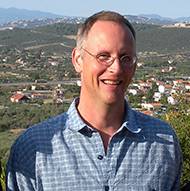 Dr. Nick Herrmann
Dr. Nick Herrmann
"Bioarchaeological Research on the Tombs from the Ayioi Omoloyites Neighborhood in Lefkosia, Cyprus" Dr. Emily Brunson
Dr. Emily Brunson
"Life in the Time of COVID-19 -
Dr. David Kilby contributes video on Bonfire Shelter for Texas Archeology Month
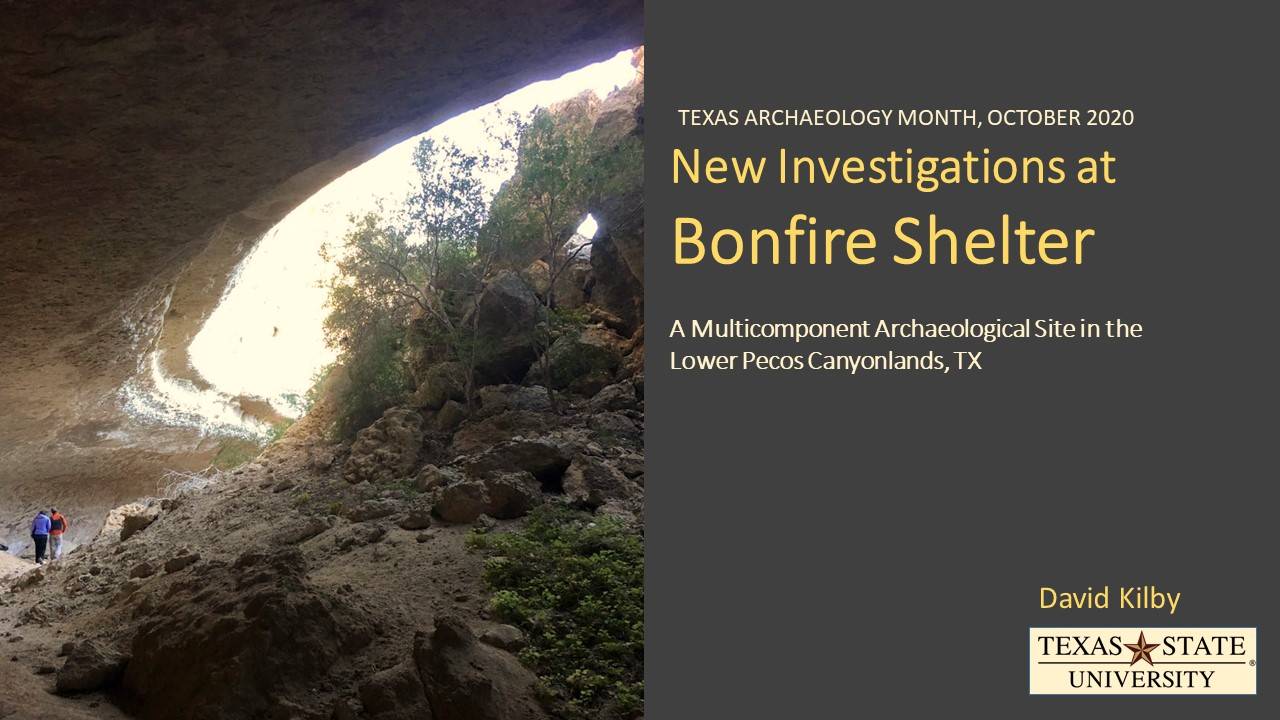 The Texas Historical Commission invited Dr. David Kilby to contribute a presentation on his research at Bonfire Shelter, TX for an annual lecture series in honor of Texas Archeology Month. Dr. Kilby, Dr. Steve Black, and a crew of Texas State University students and volunteers have been carrying out fieldwork for four years at this notable Texas rock shelter, which is famous for it’s prehistoric bison kills and Ice Age animal remains. Due to the pandemic, the 2020 Texas Archeology Month Symposium was held virtually and the presentations made publicly available as a video playlist on YouTube.
The Texas Historical Commission invited Dr. David Kilby to contribute a presentation on his research at Bonfire Shelter, TX for an annual lecture series in honor of Texas Archeology Month. Dr. Kilby, Dr. Steve Black, and a crew of Texas State University students and volunteers have been carrying out fieldwork for four years at this notable Texas rock shelter, which is famous for it’s prehistoric bison kills and Ice Age animal remains. Due to the pandemic, the 2020 Texas Archeology Month Symposium was held virtually and the presentations made publicly available as a video playlist on YouTube.The full playlist can be found on the Texas Archeology Month Virtual Symposium page, or view Dr. Kilby’s presentation, New Investigations at Bonfire Shelter—A Multicomponent Archeological Site in Lower Pecos Canyonlands.
-
Missing in Brooks County - Texas Premiere
Missing in Brooks County, the award winning feature-length documentary featuring Texas State Anthropology faculty and students, will premiere at Docs Drive-In November 6 at 6:00 as part of the Lost River Film Festival.
MISSING IN BROOKS COUNTY follows two families who’ve come to Brooks Co to look for missing loved ones. Hunting for answers, they encounter a haunted land where death is part of everyday life. A gripping documentary mystery, it is also a deeply humane portrait of law- enforcement agents, human-rights workers, anthropologists from Texas State University & grassroots activists, who are face-to-face with the ongoing fatal fallout of a broken policy.
-
Drs. Danny Wescott and Deborah Cunningham awarded NIJ Grant
Congratulations to Danny Wescott and Deborah Cunningham on their $683,542 award (dates: 2021-2023) from the National Institute of Justice for their project, ““Body mass estimation using bone micro- and macro-structure: a practical approach using CT imaging and computer analysis.”
Abstract: “The awarded funds will enhance medicolegal death investigations of unidentified skeletonized individuals by developing a novel method for accurate and reliable estimation of body mass and/or BMI categories with measured uncertainty from human skeletal remains and a user-friendly cross-platform software package (Forensic Body Mass Estimation Toolkit) that can be used by forensic anthropologists working in the United States.”
-
Doctoral student Kaelyn Dobson featured in Anthropology podcast
Doctoral student Kaelyn Dobson can be heard in the podcast Anthropologically Speaking on Apple Podcasts: "Monkey Business: Talking Primatology" with Kaelyn Dobson.
"Anthropology isn't just the study of humans... there's some incredible anthro research about our non-human primate friends, too! Join Katie and Isabelle as they talk to Texas State PhD student Kaelyn Dobson about all things monkeys! With topics from gut microbiomes to monkey antics, this episode is sure not bonoboring! (Yes, we recognize that that is an awful pun)."
-
Anthropology Department Brown Bag | Dr. Kent Reilly
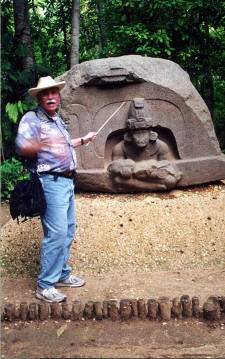 Our next faculty brown bag will take place next Friday, October 23 from 12:00-1:00 pm via Zoom. This time we will be hearing from Dr. Kent Reilly who will be giving the talk: "Recovering Ancient Spiro: Native American Art, Ritual, and Cosmic Renewal."
Our next faculty brown bag will take place next Friday, October 23 from 12:00-1:00 pm via Zoom. This time we will be hearing from Dr. Kent Reilly who will be giving the talk: "Recovering Ancient Spiro: Native American Art, Ritual, and Cosmic Renewal." -
Missing in Brooks County
Dr. Kate Spradley and the Operation Identification team, including Drs. Nick Herrmann and Tim Gocha and MA and PhD students are featured in Missing in Brooks County, a new feature length documentary about missing and unidentified persons in South Texas, Missing in Brooks County.
The film will premier October 9th at the Hot Springs Documentary Film Festival and can be viewed online throughout the US.
-
Three Doctoral Students Received $150,000 NIJ Research Fellowships
Three of our doctoral students received $150,000 National Institute of Justice Graduate Research Fellowships: Emilie Wiedenmeyer (mentor Michelle Hamilton), Mariah Moe (mentors Kate Spradley, Tim Gocha) and Petra Banks (mentor Nick Herrmann). The titles of their projects are below.
Congratulations to all! A very special thanks to Danny Wescott, who teaches our doctoral proposal writing class, and to Andrea Hilkovitz and Brian Smith (Graduate College), who provide extraordinary help and support to our students.
Emilie: An examination of musculoskeletal markers in modern populations for forensic analysis and identification purposes.
Mariah: Finding the missing and unidentified: The application of predictive modeling, ground-penetrating radar, and small unmanned aircraft-mounted infrared imagery for the detection of unmarked graves.
Petra: Skeletal blast trauma: Determining the effect of known and experimental blast events on trauma patterns, fracture behavior, and blast scene recovery approaches
Their proposal abstracts can be found here on the National Institute of Justice website.
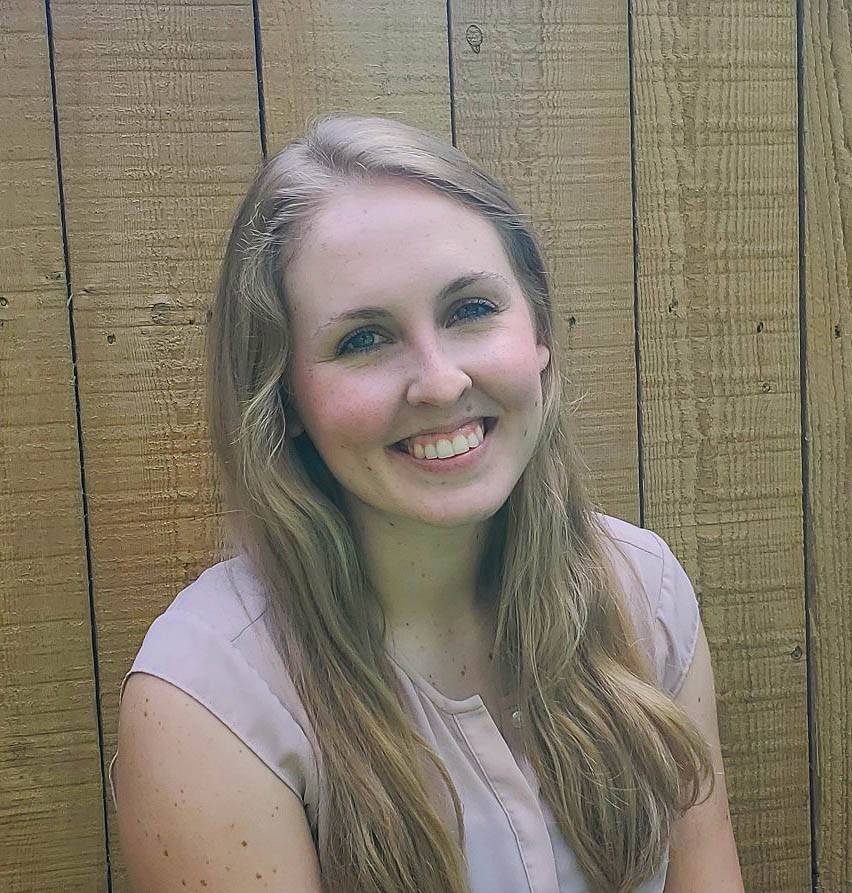
Emilie Widenmeyer
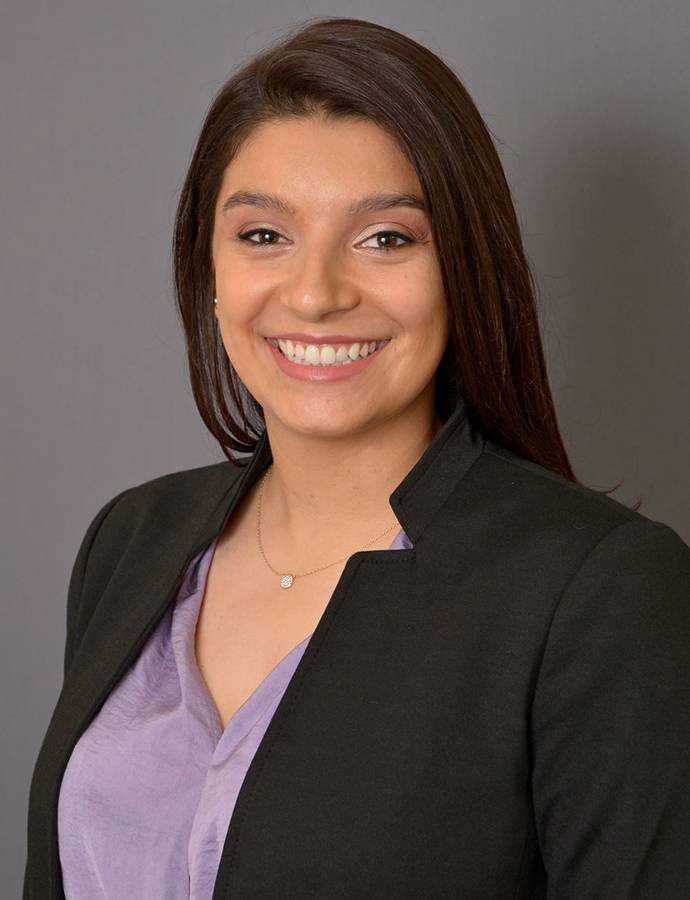
Mariah Moe
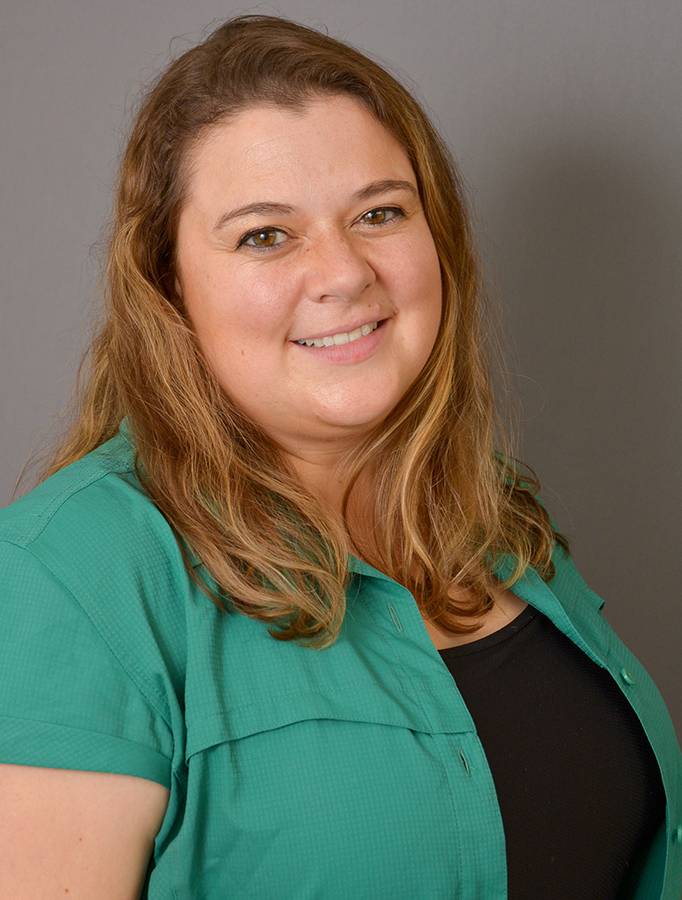
Petra Banks
-
Anthropology Department Brown Bag | Dr. Pruetz and Dr. Jacobson
Get-to-know-the-faculty Brown Bag, Friday, September 18, 2020!
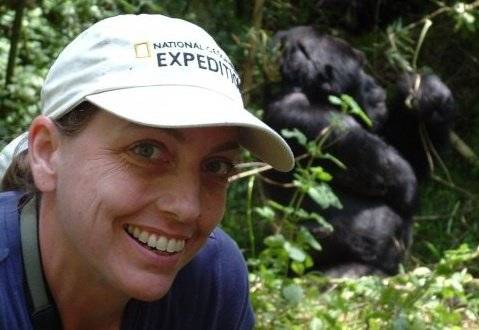 Dr. Jill Pruetz will be presenting "Pan the Hunter: Female Chimps in Senegal Hunt and Provision Others."
Dr. Jill Pruetz will be presenting "Pan the Hunter: Female Chimps in Senegal Hunt and Provision Others."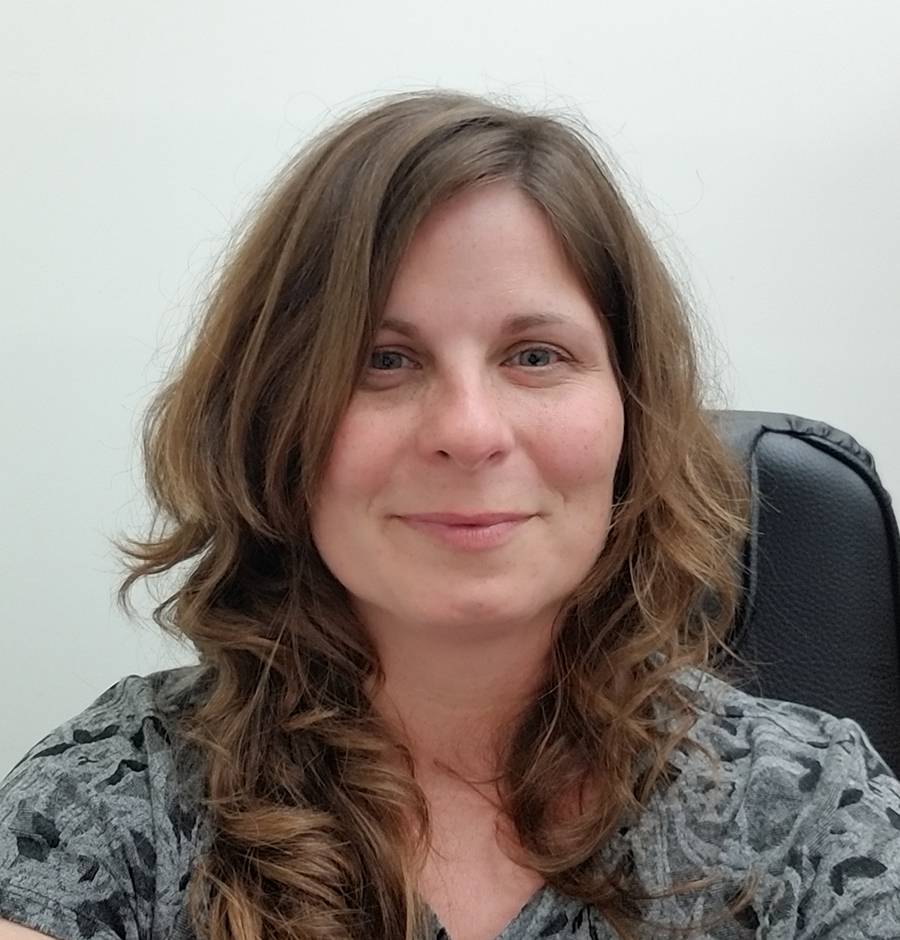 Dr. Jodi Jacobson will be presenting "My Dog Ate My Bone Tool: Domesticated Dog Evidence at an Archaeological Site in Central Texas."
Dr. Jodi Jacobson will be presenting "My Dog Ate My Bone Tool: Domesticated Dog Evidence at an Archaeological Site in Central Texas." -
Dr. Nicole Taylor and her Team Featured in Hillviews Magazine
Dr. Nicole Taylor and her research team were recently featured in a Hillviews Magazine article titled Sounds of Silence. The article highlights findings from her 2017 NSF grant to study methodological and ethical issues related to social media research.
-
Dr. Kate Spradley and her team featured on Vice News
Dr. Kate Spradley and her research team were recently featured in a Vice News video titled "Anonymous Corpses at America’s Deadliest Border Crossing."
The video summary from Vice reads:
A humanitarian crisis is overwhelming South Texas as migrants continue to die trying to cross the United States-Mexico border. In Episode 1 of Overlooked, VICE follows forensic anthropologist Kate Spradley and her team to Brooks County, one of the deadliest stretches of the Texas migration corridor, as they exhume the bodies of migrants in hopes of identifying them for their families, and highlighting how Texas law is not being followed in some counties.If your loved one is missing, register them with the National Missing and Unidentified Persons System (NamUS).
-
Dr. Jill Pruetz and collaborators receive $610,000 NSF grant!
Dr. Jill Pruetz is a co-PI on a project with her former doctoral student, Stacy Lindshield (PI, Department of Anthropology at Purdue University) and collaborator Leslie Knapp (co-PI, Department of Anthropology at University of Utah). Their project “Collaborative Research: The Ecological Basis of Hunting and Meat Sharing in Female Savanna Chimpanzees” was just awarded a NSF grant for $610,000!
Project Abstract:
Collaborative Research: The Ecological Basis of Hunting and Meat Sharing in Female Savanna ChimpanzeesHunting with tools may enable female chimpanzees to routinely ingest and share meat on a seasonal basis without the need for being provisioned by males. This project precisely captures the effect of hunting with tools on chimpanzees’ diet and compares the weight of these findings to the causes and consequences of male-biased trends that characterize most chimpanzee groups studied today. The dietary contributions of these huntresses to their groups matter because male- biased hunting and meat sharing trends for chimpanzees have been traditionally integrated with models of human behavioral evolution. This project increases capacity for chimpanzee research in Senegal by fully engaging with and supporting local partners and students. The research is part of a long-term program that supports habitat preservation in protected and unprotected areas of Senegal for the critically-endangered western chimpanzee. The research further engages in conservation activities through the active study of conservation genetics in Senegalese chimpanzees, development of the national conservation action plan, and contributions to charitable and community services that support education and health care for local residents living alongside these chimpanzees through the Neighbor Ape organization. The project provides exceptional research opportunities for undergraduate and graduate students, especially underrepresented minority and first-generation students to support diversity and inclusion efforts in biological anthropology and STEM, more broadly. This project also interfaces with Purdue University’s EPICS program (Engineering Projects in Community Service) to provide collaborative design experiences for undergraduate students.
Sexual selection theory and patterns of male-biased hunting and meat eating for chimpanzees (Pan troglodytes) have been traditionally integrated with models of human behavioral evolution. While there is a well-documented understanding of these behaviors in forest chimpanzees, a significant gap exists on how chimpanzees hunt and eat meat in savannas. What little is known about hunting and meat-eating in savanna chimpanzees, however, starkly contrasts with the typical species pattern. In the hottest, driest, and most open landscapes inhabited by chimpanzees, tool use and female-biased hunting comprise a major component of hunting strategy. This study will test for environmental pressures that may explain this elegant hunting behavior. Little is known about female-biased hunting because these timid chimpanzees are not habituated for intensive behavior sampling, nor should they be habituated due to their conservation status combined with risk of infant poaching for the pet trade. To confront this challenge, the project combines behavioral, isotopic, nutritional, genetic, visual analytic, and geographic approaches to compare hunting and meat ingestion between females and males, and in relation to climate and food availability. This interdisciplinary and multi-site study is a part of the HUNTRESS project on HUnting, Nutrition, Tool-use, Reproductive Ecology, and meat Sharing in Savanna chimpanzees to holistically assess female-biased hunting. The project will measure meat ingestion with stable isotope and feeding trace analyses, and compare these signatures to direct observations of hunting and meat ingestion in a reference group of habituated adult males. Furthermore, the project compares meat ingestion to annual climate trends as well as food and macronutrient availability. A molecular component enables sex-determination and individualization information from hair and feces. The video analytics component efficiently measures mammal (prey) availability remotely from camera-trap videos and still images. At the same, the research will advance machine-learning capabilities by incorporating domain knowledge to improve accuracy and precision of mammal localization.
-
Index of Texas Archaeology
Zac Selden (Center for Regional Heritage Research at SFASU) and Britt Bousman have revised their Index of Texas Archaeology website. It has new functions (most downloaded reports, and most cited reports) as well as a new look. Since its inception in 2016, almost 140,000 reports have been downloaded with over 81,000 downloads in the past year. Earlier this summer we finalized a MOU with the Texas Historical Commission and are busy adding their 2500 or so available reports to our inventory.
-
Congratulations to Anthropology alumna, Anneke Paterson.
Congratulations to Anthropology alumna, Anneke Paterson who recently had her undergraduate Honors thesis published! Her Honors thesis, Visually Re-membering the Eastside: Trajectories of Belonging and Displacement in Austin, was published in the Journal of Undergraduate Research in Anthropology at the University of Central Arkansas.
Anneke is a recently earned her undergraduate degree in Anthropology and was the Department's Outstanding Undergraduate Student in Anthropology in 2020.
-
Congratulations to Amy Reid on the Veterans Curation Program
Financially supported by the Corp, the Veterans Curation Program program is a five-month employment program, during which veterans receive training in archaeological processing. Using industry-specific technology and software, veterans work to repackage, photograph, and catalog important archaeological collections. These collections can include artifacts and their associated records, as well as historic documents and photographs.
-
Dr. Jill Pruetz's Work Featured in New York Time
The work of Jill Pruetz and former Iowa State PhD student, Kelly Boyer Ontl, with chimpanzees in Senegal is featured in the New York Times article Mother Chimpanzees Know the Coolest Place in a Scorching Savanna. It’s a very cool article (pun intended)! When it’s 110 degrees Fahrenheit in the savanna, it can be up to 55 degrees cooler in the caves. Mother chimpanzees spent most of their time in the caves resting, socializing and grooming, while their infants played with one another. Sometimes, the mothers brought along snacks: fruits of the African baobab and camel’s foot tree.
-
UNESCO World Heritage Site Brimstone Hill Fortress National Park
Highlighted in the link below are Dr. Todd Ahlman and his team’s contributions in November 2018 and August 2019 to the archaeological research related to the restoration of a collapsed 1723 defensive wall at the UNESCO World Heritage Site Brimstone Hill Fortress National Park on St. Kitts. Graduate students Taylor Bowden and Bryan Heisinger were on the crew with Todd and Dr. Gerald Schroedl (emeritus professor at the University of Tennessee). Their work was crucial to the preservation of an 1820s hospital and deposits associated with the hospital.
-
Dr. Emily Brunson Interviewed by The New York Times
Dr. Emily Brunson was interviewed for Mistrust of a Coronavirus Vaccine Could Imperil Widespread Immunity in The New York Times. Also attached is the published report mentioned in the article by the working group co-chaired by Emily and Dr. Monica Schoch-Spana. Anthropology doctoral student, Rex Long, is a member of the working group and co-author of the report.
Schoch-Spana M, Brunson E, Long R, Ravi S, Ruth A, Trotochaud M on behalf of the Working Group on Readying Populations for COVID-19 Vaccine. The Public’s Role in COVID-19 Vaccination: Planning Recommendations Informed by Design Thinking and the Social, Behavioral, and Communication Sciences. Baltimore, MD: Johns Hopkins Center for Health Security; 2020.
-
Dr. Kent Reilly Featured on Museums From Your Home
Congratulations to Dr. Kent Reilly who was featured again on the YouTube series Museums From Your Home by the University of Alabama.
Dr. Reilly's talk was titled The Search for Underworld Powers and was recorded on June 29, 2020.
-
CAS Secures New Service Agreement
Congratulations to Amy Reid, Curator at the Center for Archeological Studies (CAS)!
Amy has a new TxDOT Curation Services agreement in place for 2021-2022 for $287,623.70.
This new agreement will include some new and exciting tasks to our curation services for TxDOT, including specialized artifact imaging and archival processing:- Hi-res artifact photography using computer-operated, drop-out lighting system with standardized composition for publication, analysis and curation-quality 2D Digital images
- 3D scanning and printing
- Oversized archives scanning
- Digitization of archival photographic prints, film and slides
-
Congratulations to our first Ph.D. Cohort!
Congratulations to our first cohort in the Ph.D. program – The Groundbreakers – who are officially ABD! Congratulations to Sophia Mavroudas, Courtney Siegert and Devora Gleiber for passing their qualifying exams and successfully defending their dissertation proposals. In addition, they each have brought in significant amounts of external funding from sources such as the NIJ and the NSF. They have set a very high bar for future cohorts! A sincere thanks to their mentors – Nick Herrmann, Kate Spradley and Danny Wescott.
-
The Adventure of Rock Art
Dr. Carolyn Boyd from the Department of Anthropology will be joined by renowned French archaeologist Dr. Jean-Michel Geneste and award winning film producer Martin Marquet in an online event entitled "The Adventure of Rock Art." The event will take place on Sunday, May 31 via Zoom and is sponsored by the Center for Contemporary Arts in Santa Fe, NM.
-
Students complete service learning project on behalf of Meals on Wheels Central Texas
Students in Dr. Emily Brunson's ANTH 3336/5336 (Community Research Project) recently completed a service learning project on behalf of Meals on Wheels Central Texas (MOWCTX). Building off of MA student Christine Bonagurio's thesis research, the class designed and conducted a survey of MOWCTX clients and developed the following video (with the help of Texas State communications student Andrew Wright) to highlight the study findings. The overall purpose of the project is to explain, to state legislators and others, how the service provided by MOWCTX is about more than just providing meals.
-
Dr. Kent Reilly Featured in YouTube Series, Museums From Your Home
Congratulations to Dr. Kent Reilly who was recently featured the YouTube series Museums From Your Home by the University of Alabama.
Dr. Reilly's talk was titled Beliefs/Symbolism of Ancient Moundville and was recorded on May 19, 2020.
-
Film: The Final Passage
In February, Dr. Jean-Michel Geneste, University de Bordeaux, gave a talk in the Anthropology Department called Sapiens Think in Images: The Paleolithic Art of Chauvet Cave. His presentation included the awarding film, The Final Passage, which is available on to view from May 7 to June 7, 2020.
-
Ashley Eyeington Awarded CTA Student Research Grant
Congratulation to Ashley Eyeington (mentor Dr. Kilby) who was recently awarded the Council of Texas Archeologist’s 2020 Student Research Grant for her thesis research, “Geoarchaeological Approach to Resolving the Origins of Bison Bone Beds at Bonfire Shelter, 41VV218, Val Verde County, Texas.” The award provides $1200 of support for her analyses.
-
Dr. Todd Ahlman elected as President of the Council of Texas Archaeologist's (CTA)
Congratulations to Dr. Todd Ahlman, Director of the Center for Archaeological Studies, who was recently elected as President of the Council of Texas Archeologist’s (CTA)!
-
Anthropology Major Chosen for Presidential Upper Level Scholarship Program
The Anthropology Department is pleased to announce that anthropology major, Olivia Green, was chosen as the recipient of the Presidential Upper Level Scholarship for the College of Liberal Arts. The Presidential Upper Level Scholarship Program provides financial assistance and special recognition to a limited number of undergraduate students who have been outstanding in their college work. Each Scholarship is valued at twelve hundred dollars. Each of the eight undergraduate colleges are authorized to choose one student per year for the award.
-
Drs. Brunson and Schoch-Spana featured in "Our Pandemic Summer"
Medial anthropologists, Dr. Emily Brunson and Dr. Monica Schoch-Spana, are featured in, “Our Pandemic Summer,” in The Atlantic. It’s a sobering and excellent article by Ed Yong.
-
Congratulations to Dr. Jill Pruetz's on her new book!
Dr. Jill Pruetz’s book, You Can Be a Primatologist: Exploring Monkeys and Apes with Dr. Jill Pruetz (National Geographic Kids), is now available! Congratulations, Jill!
-
Congratulations to Dr. Kent Reilly on Spiro Exhibit
Dr. Kent Reilly has been working for several years with colleagues from the National Cowboy and Western Heritage Museum on an exhibition and catalogue of the artifacts, symbols, and motifs of the prehistoric Spiro people. (The Spiro people created a sophisticated culture which influenced the entire southeast of the U.S. Artifacts indicate an extensive trade network, a highly-developed religious center, and a political system that controlled the entire region. The Spiro Mounds were occupied by AD 800 and were used until about AD 1450.) We are happy to announce that the group was awarded a $400,000 National Endowment of the Humanities (NEH) implementation grant for the exhibition! The exhibition opening will occur sometime next year.
Congratulations to Kent, Eric Singleton (curator at the museum), and everyone involved!
-
Doctoral Student Wins P.E.O. Scholar Award
Congratulations to Doctoral student, Sophia Mavroudas (mentor Herrmann), who has won a P.E.O. Scholar Award for $15,000. The P.E.O. Scholar Awards are one-time, competitive, merit-based awards intended to recognize and encourage academic excellence and achievement by women in doctoral-level programs. These awards provide partial support for a variety of things such as study and research …, and even childcare! P.E.O. Scholars have demonstrated their ability to make significant contributions in their chosen field of study, having assumed leadership positions in university academics, scientific research, medicine, law, performing arts, international economics, history, literature, government and other demanding fields.
Congratulations to Sophia! Thank you to Dr. Herrmann for his mentorship and to Dr. Hilkovitz and Dr. Smith (Graduate College External Funding Coordinators) for their hard work helping our students craft their proposals.
-
Anthropology Department Selected for NSF Fellowship
The Anthropology Department is happy to announce that MA student, Alexis Baide (mentor Herrmann) was selected for a very prestigious National Science Foundation’s Graduate Research Fellowship Program (NSF GRFP) award. MA student, Ivanna Robledo (mentor Herrmann) was given an honorable mention by the award committee. The NSF GRFP provides three years of support ($138,000) for graduate education. Fellows may pursue master’s and doctoral degrees in science, technology, engineering, and mathematics, STEM education, and NSF-supported social sciences.
Congratulations to Alexis and Ivanna! Thank you to Dr. Herrmann for his mentorship and to Dr. Hilkovitz and Dr. Smith (Graduate College External Funding Coordinators) for their hard work helping our students craft their proposals.
-
Anthropology Career Workshop
The Anthropology Department will be holding a virtual Career Workshop where students will have the opportunity to both explore job prospects and career options with an Anthropology degree, and learn skills related to resume and cover letter writing. The workshop will be hosted by Dr. Augustine Agwuele.
Date | Thursday, April 9, 2020
Time | 3:00 - 4:00 pm
Where | The workshop will be held via Zoom (meeting link to follow)Tentative Event Timeline Overview:
- Moderator: Augustine Agwuele
- 3:00 pm – 3:50 pm: Career Option Discussion
- Dr. Timothy Gotcha: Associate Director, Forensic Anthropology Center
- Dr. Todd Ahlman: Director of the Center for Archaeological Studies Texas State
- Ms. Tori Graham: Career Service:
- Dr. Neil Hadder: Internship Coordinator
- 3:50 pm – 4:00 pm: Resume / Cover Letter / Q&A
Please contact Dr. Agwuele for more information.
-
Outstanding Doctoral Student
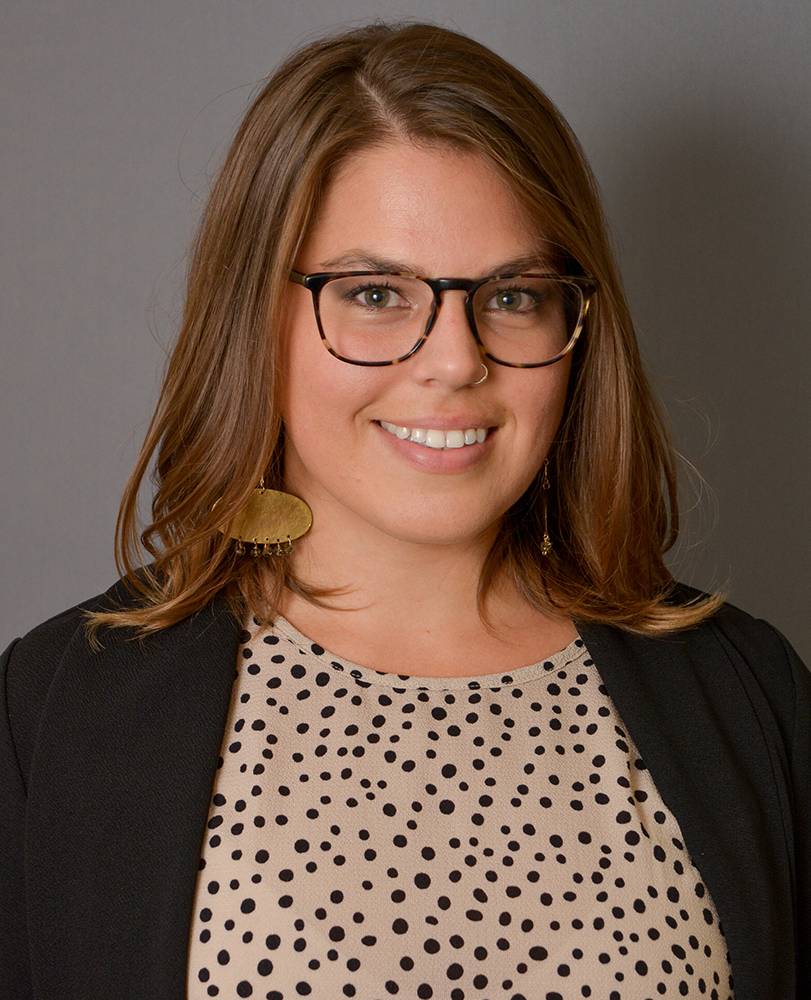 Congratulations to Ph.D. student, Courtney Siegert, who has been selected as the Outstanding Doctoral Student in the College of Liberal Arts for 2019-2020. The Department is especially pleased because this was the first year we were able to compete at the doctoral level.
Congratulations to Ph.D. student, Courtney Siegert, who has been selected as the Outstanding Doctoral Student in the College of Liberal Arts for 2019-2020. The Department is especially pleased because this was the first year we were able to compete at the doctoral level. -
Awards for Fort Leonard Wood Staff
Recently, Center for Archaeology staff at Fort Leonard Wood in Missouri were awarded Secretary of the Army Environmental Awards for Cultural Resource Management and Environmental Quality. These awards reflect highly on Fort Leonard Wood and the Texas State University staff at the installation.
Our Fort Leonard Wood staff include:
- Stephanie Nutt (Cultural Resources)
- Judy Harmon (Clean Water Act)
- Heather Williams (Clean Water Act)
- Kimberly Snouffer (Clean Water Act)
- Jeffry Lamb (Clean Water Act)
- Randall Willis (GIS)
- Patricia Littleton (National Environmental Policy Act)
- Joe Proffitt (Natural Resources)
The Fort Leonard Wood staff do wonderful work and these awards reflect their dedication to cultural resource and environmental preservation.
-
Master's Student Wins Travel Award
Master's student, Stephanie Medrano (mentor Spradley), won a Pollitzer Student Travel Award for $500 to present her paper, Postcranial sex estimation for unidentified migrants along the U.S. Southern Border, at the American Association of Physical Anthropologists conference in April. Well done, Stephanie!
-
Outstanding Anthropology Students Awards
The faculty are proud to announce the Outstanding Anthropology Students for 2020:
- Outstanding Undergraduate Major – Anneke Paterson
- Outstanding Master’s Student – McKensey Miller
- Outstanding Doctoral Student – Courtney Siegert
-
Society for Historical Archaeology's Diversity Field School Award
Congratulations to Todd, Ashley and Nick who won the Diversity Field School Award from the Gender and Minority Affairs Committee (Society for Historical Archaeology) for their NSF funded Research Experiences for Undergraduates field school in the Caribbean on the island of St. Eustatius. This award recognizes field schools offering “archaeological practices that foster diversity in research objectives, perspectives, and participation.” The Gender and Minority Affairs Committee “recognizes that diversity is multi-dimensional and thus ‘inclusive of race, ethnicity, gender, sexual orientation, abilities, and socio-economic background.’”
Their field school offers a wide range of research opportunities and topics for the students in archaeology, bioarchaeology, and geophysics. Todd, Ashley and Nick strive to include students from a variety of backgrounds. From their field school nomination form: “Between June 2018 and December 2019, 20 undergraduate and 3 graduate students have participated in the field school. Within our goal of providing research opportunities for women and racial and ethnic minorities, 65% of the undergraduate students identified as racial and ethnic minorities, 80% were women, half were first generation college students, and roughly 40% of the students started their studies at a community college. Five undergraduate students would be considered “non-traditional” in that they did not immediately attend college after graduating high school.”
-
2020 Anthropology Research Conference
The first annual Anthropology Research Conference will be held on the afternoon of Friday, March 27.
Graduate and undergraduate students in all fields of anthropology are invited to submit proposals for presentations to be included in the conference by March 1, 2020. Presentations should be 15 minutes long (they will be timed) and may include PowerPoint slides.
Cash prizes will be awarded in both graduate and undergraduate categories as follows:
Graduate Research
- First Prize | $100
- Second Prize | $50
Undergraduate Research
- First Prize | $100
- Second Prize | $50
-
Human Remains Exhumed at La Grulla Cemetery to be Identified through DNA Samples
KRGV reports on Texas State faculty and students conducting exhumations at La Grulla Cemetery near the South Texas/Mexico border.
-
Dr. Kate Spradley Featured on Texas Public Radio | The Dead in the Desert
A two part series from Texas Public Radio featuring Dr. Kate Spradley and Ph.D. students from the new Applied Anthropology program conducting exhumations in the Sacred Heart Cemetery in Falfurrias, Texas.
-
Treated Like Trash: the project trying to identify the bodies of migrants
The Guardian features Dr. Kate Spradley and undergraduate and graduate students from Texas State University Department of Anthropology as they exhume unidentified human remains in La Grulla, Texas, near the border.
-
